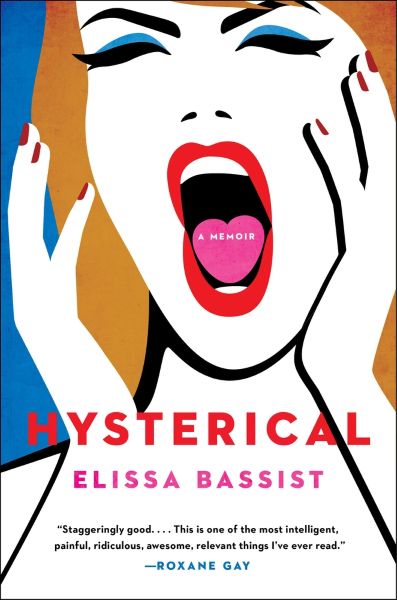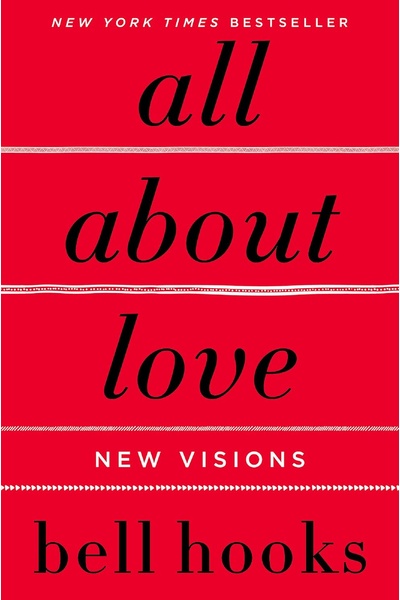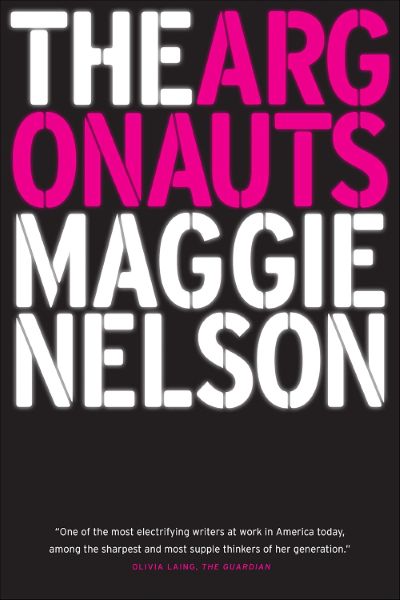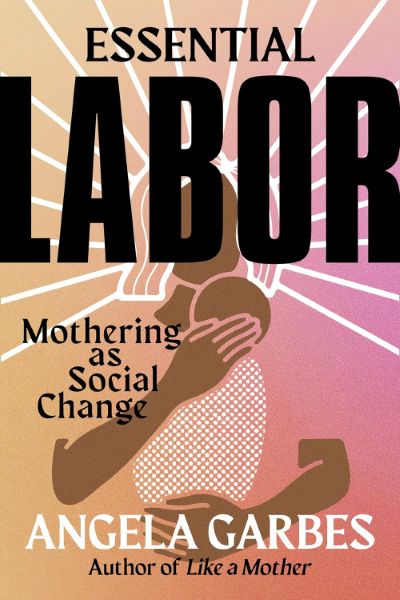Hysterical: A Memoir
Acclaimed humor writer Elissa Bassist's memoir about reclaiming her authentic voice in a culture that doesn't listen to women. Between 2016-2018 she saw 20+ medical professionals for mysterious ailments, until an acupuncturist suggested her physical pain could be caged fury. This is medical mystery, cultural criticism, and rallying cry. Semi-finalist for 2023 Thurber Prize for American Humor.

📝 Book Review
Between 2016 and 2018, Elissa Bassist saw over twenty medical professionals for a variety of mysterious ailments. She had what millions of American women had: pain that didn’t make sense to doctors, a body that didn’t make sense to science, and a psyche that didn’t make sense to mankind. Then an acupuncturist suggested that some of her physical pain could be caged fury finding expression, and that treating her voice would treat the problem. It did. Growing up, Bassist’s family, boyfriends, school, work, and television shows had the same expectation for a woman’s voice: less is more. She was called dramatic and insane for speaking her mind. She was accused of overreacting and playing victim for having unexplained physical pain. She was ignored or rebuked for using her voice “inappropriately” by expressing sadness, suffering, anger or joy. Because of this, she said “yes” when she meant “no”; she didn’t tweet #MeToo; and she never spoke without fear of being “too emotional.” She felt rage, but like a good woman, she repressed it. “Hysterical” is a memoir of a voice lost and found, a primer on new ways to think about a woman’s voice, and a clarion call for readers to unmute their voice and use it again without regret.
Elissa Bassist is an editor, humor writer, teacher, speaker, and author. As a founding contributor to The Rumpus, she’s written cultural, feminist, and personal criticism since the website launched in 2009. She created and formerly edited Funny Women on The Rumpus. Her work has appeared in The New York Times, Marie Claire, Creative Nonfiction, NewYorker.com, Longreads, and the anthology Not That Bad: Dispatches from Rape Culture, edited by Roxane Gay. She teaches writing at The New School, Catapult, 92nd Street Y, and Lighthouse Writers Workshop. Her debut “Hysterical” was a semi-finalist for the 23rd Thurber Prize for American Humor, and her second book, a comedy writing craft book, is forthcoming from Grand Central Publishing in 2026. Notably, it was Bassist’s letter to Dear Sugar (later revealed to be Cheryl Strayed) lamenting that she wrote “like a girl” that prompted Strayed’s famous advice to “write like a motherfucker.”
The word “hysterical” itself carries the historical weight of misogyny. It derives from the Greek “hystera,” meaning uterus. In the 19th and early 20th centuries, the medical establishment invented “hysteria” as a diagnosis to explain women’s various physical and psychological symptoms—from pain and spasms to mood swings. Doctors believed these symptoms stemmed from the uterus “wandering” or malfunctioning, thus only women could suffer from this disease. Treatments included enforced rest, isolation, even hysterectomy. Freud and his contemporaries psychologized hysteria but still attributed it to women’s “nature”—their sexuality, their emotions, their irrationality. “Hysterical” became a pejorative used to dismiss women’s emotional expressions, deny their pain, question their sanity. When a woman is called “hysterical,” her words lose credibility, her experiences are deemed exaggerated or imagined.
Bassist reclaims this word, using it as a lens to examine the silencing and denial women still face in contemporary society. Her personal story is a microcosm of this larger pattern: from childhood, she was taught to suppress her voice. Her family atmosphere was repressive, emotional expression viewed as weak or inappropriate. Her father was authoritative and silent, her mother complied with this dynamic, and Bassist learned girls should be quiet, compliant, not make trouble. At school, she discovered smart girls should be low-key, not appear “too smart” lest they threaten boys. In romantic relationships, the men she encountered expected her to accommodate, compromise, not complain. In workplaces, she was told to be “professional,” meaning suppress emotions, avoid conflict, don’t be “too radical.” TV, movies, magazines all reinforced the same message: good women are quiet, gentle, don’t make trouble.
This constant, ubiquitous pressure led Bassist to internalize self-censorship. She learned to audit her words before speaking, worrying they’d be too much, too emotional, too “dramatic.” She learned to say “yes” when she meant “no” because refusal was viewed as unkind, uncooperative, selfish. She learned to suppress anger because angry women are viewed as crazy, hysterical, out of control. She learned to minimize her suffering because complaining women are viewed as exaggerating, attention-seeking, playing victim. She learned to question her own perceptions and experiences because women’s subjectivity is always suspect. She became her own censor, limiting her voice more harshly than any external force.
The cost of this self-silencing was physical and psychological illness. Starting in 2016, Bassist experienced a series of mysterious bodily symptoms: severe abdominal pain, nausea, dizziness, fatigue, muscle pain, digestive issues. She saw doctors, underwent countless tests—blood work, ultrasounds, endoscopies, MRIs—but all results were “normal.” Doctors were puzzled; some suggested symptoms might be “psychosomatic” or “stress-related.” This suggestion itself was a dismissal—as if “psychosomatic” meant “not real,” as if stress-induced pain wasn’t genuine pain. Bassist felt trapped: her body was clearly suffering, but medicine couldn’t name or treat it. She began questioning herself—maybe she was exaggerating? Maybe she was hysterical?
This experience is all too familiar to millions of women. Research repeatedly shows women’s pain is more likely to be ignored, underestimated, or misdiagnosed by medical systems. Women wait longer for pain treatment, are less likely to receive pain medication, their symptoms more likely attributed to “anxiety” or “stress” rather than physiological causes. This is partly because medical research and education have long used male bodies as standard, with female bodies viewed as “special cases” or “complex variants.” Partly because stereotypes of women as “emotional” and “exaggerating” make their subjective pain reports distrusted. Partly because certain conditions affecting women more (like fibromyalgia, chronic fatigue syndrome, autoimmune diseases) have historically been marginalized or psychologized, receiving insufficient research and understanding.
Bassist’s turning point came from a non-traditional source: an acupuncturist. After seeing over twenty Western doctors, Bassist tried acupuncture in desperation. The acupuncturist listened to her story—not just a symptom list but her life, her stresses, her emotions. The acupuncturist asked a question no doctor had asked: are you angry? Bassist’s first response was denial—she wasn’t an angry person, she wasn’t that kind of woman. But as the acupuncturist continued exploring, Bassist began realizing that beneath her polite, compliant surface, enormous anger indeed lurked: anger at the sexual harassment and assault she’d experienced, anger at being taught to suppress her voice, anger at her pain being ignored, anger at always having to be a “good girl.”
The acupuncturist proposed a radical idea: these repressed emotions, especially anger, might be expressing themselves as bodily pain. When voice is closed off—literally and figuratively—the body becomes an alternative expression channel. Bassist’s body was screaming what her voice wasn’t allowed to say. Treatment wasn’t more tests or medication but finding, listening to, and expressing that suppressed voice. The acupuncturist suggested Bassist start writing—not for publication or perfection but for expression, to let blocked words flow out.
Bassist began writing, initially private journals, then essays. She wrote her anger. She wrote her pain. She wrote everything she’d been taught to suppress. She wrote her #MeToo experiences—sexual harassment and assault incidents she’d never publicly shared because she feared not being believed, feared being blamed, feared being viewed as “creating drama.” Writing became liberation—every written word was resistance to silencing, every expressed emotion was refusal of repression. As her voice grew stronger on the page, her bodily symptoms began easing. Pain didn’t completely disappear but became more manageable. She began understanding the connection between body and voice, pain and power.
Bassist explores in detail the socialization process of women’s voices. From earliest ages, girls are taught how and when to use their voices. They’re told to use “inside voices” (i.e., quiet), not “scream” or be “loud,” to “politely” interrupt (i.e., not interrupt at all). They’re praised as “quiet” and “well-behaved,” while loud or opinionated girls are rebuked as “rude” or “difficult.” This training intensifies in adolescence: teenage girls learn to lower their voice’s volume and pitch to avoid being seen as “drama queens” or “attention seekers.” They learn to speak with rising intonation, turning statements into questions to seem less certain or threatening. They learn to add qualifiers like “maybe,” “perhaps,” “I think” to soften their views. They learn to apologize—for their existence, their needs, their opinions.
This voice discipline isn’t just about volume or pitch but content. Girls and women are taught which topics they can discuss, which are off-limits. They can talk about others—caring, gossiping, emotional labor—but shouldn’t talk about themselves except in self-deprecating ways. They can express certain emotions (tenderness, caring, mild sadness) but shouldn’t express others (anger, sexual desire, intense joy). They can make requests but must frame them as requests and be prepared for refusal. They can complain but not “too much,” lest they be viewed as “negative” or “toxic.” They can share opinions but must be careful not to seem “too political” or “too radical,” lest they be marginalized or attacked.
Bassist also analyzes how the concept of “emotional labor” relates to women’s voices. Women are expected to manage not only their own emotions but others’—soothing, mediating, caring, supporting. This labor is invisible, unpaid, but women are blamed if it’s not completed. More insidiously, this expectation extends to how women use their voices: they should say what makes others comfortable, avoid saying what might make others uncomfortable, even if those words are truthful and important. Women’s voices are instrumentalized—their value lies in the service they provide others, not the truths they express or rights they claim.
One of the book’s most powerful sections is Bassist’s personal reflection on the #MeToo movement. She has her own #MeToo stories—multiple stories, actually—but never publicly shared them. She describes a male supervisor’s persistent sexual harassment, an acquaintance’s sexual assault, and countless unwanted touches, comments, and situations. Each time, she remained silent. Partly because she wasn’t sure these experiences were “bad enough” to report—she’d internalized minimization and self-doubt, questioning her perceptions. Partly because she feared consequences—not being believed, being blamed, career retaliation, social exclusion. Partly because she’d been taught women should “handle” these things, not make a “fuss.”
When the #MeToo movement erupted, Bassist felt both liberated and burdened. Seeing other women share their stories, seeing perpetrators named and held accountable, was powerful and validating. But simultaneously, she felt shame and anger at her own silence. Why couldn’t she speak up? Why even now, when there’s a movement supporting her, did she still hesitate? She realized silencing was so deeply internalized that even when external barriers were removed, internal barriers remained. She’d been taught her whole life her voice didn’t matter, her experiences weren’t credible, her anger wasn’t legitimate—these messages don’t disappear because of a hashtag or movement.
Bassist honestly explores voice reclamation’s complexities and contradictions. Feminist discourse often simplistically says “use your voice,” “speak up,” “break the silence,” as if it’s a simple choice, as if women just need enough courage or determination. But Bassist notes this ignores structural barriers and internalized oppression. Women don’t simply “choose” silence; they’re systematically taught, forced, punished into silence. Demanding they “just speak up” without acknowledging and changing the conditions that silenced them first shifts responsibility to victims.
More complexly, even when women do “speak up,” the consequences they face often confirm their initial fears. They’re not believed. They’re blamed. They’re retaliated against. They’re labeled “hysterical,” “dramatic,” “difficult.” Their voices are twisted, dismissed, used against them. Bassist shares her own experience: when she began writing more publicly about feminist issues, she received hate mail, threats, harassment. She was told by men she was “too sensitive,” “not funny” (particularly stinging as a humor writer), “should shut up.” Even some women criticized her for being “too angry” or “divisive.” Using her voice didn’t bring universal support or validation; it brought attacks and marginalization.
So why speak anyway? Bassist’s answer: because silence costs more. Silence made her sick—literally, physically ill. Silence eroded her self-knowledge and integrity. Silence alienated her from herself, disconnected her from her authentic feelings and needs. Silence is chronic self-betrayal that accumulates profound damage over time. Even if speaking is difficult, dangerous, punished, it’s still healthier, more authentic, more human than silence. Speaking is self-affirmation, resistance to silencing forces, a way to reclaim existence and worth.
Bassist also explores how women silence and are silenced by each other. She describes complex dynamics in relationships with other women—mothers and daughters, friends, colleagues. Sometimes women perpetuate the silencing they’ve experienced: mothers tell daughters to be “quiet,” female bosses expect female employees not to “make waves,” female friends advise each other to “not make it a big deal.” This isn’t because these women are malicious but because they’ve internalized patriarchal norms, believing complying with these norms is the way to survive or succeed. They try to “protect” other women from the consequences they themselves face, but in the process, they transmit oppression.
But Bassist also documents how women empower and support each other’s voice use. She describes women’s writing groups, feminist book clubs, female friendships where women encourage each other to speak truth, listen to each other’s voices, validate each other’s experiences. She’s particularly grateful to women writers and activists who came before her—those who risked greatly to use their voices, opening space for women who followed. She mentions Audre Lorde, Adrienne Rich, Gloria Anzaldúa, bell hooks—all those women who taught her silence won’t protect her, only speaking truth can.
The book’s conclusion offers practical reflections on how to reclaim and use voice. She suggests: write, even just for yourself, as a way to practice expression without immediate censorship. Find safe spaces and supportive audiences where you can try using your voice without fear of harsh punishment. Recognize and challenge the internal censor—that voice saying “don’t be too much,” “don’t be too emotional,” recognize it’s not your authentic voice but internalized oppression. Start small—perhaps not immediately “burning down the patriarchy” but speaking one authentic feeling in a conversation, offering an opinion in a meeting, setting a boundary in a relationship.
But she also warns against individualizing or reducing voice reclamation to a self-help project. This isn’t just about personal growth or confidence building but a political project of collective liberation. Women need voices not only for personal health or achievement but because their voices are crucial to public discourse, decision-making, social justice. Silencing women doesn’t just harm individual women; it deprives society of women’s insights, experiences, leadership. Enabling women to use voices requires not just personal courage but structural change: challenging gender norms, reforming institutions (education, healthcare, workplaces, media), punishing those who attack and silence women, amplifying and valuing women’s voices.
Bassist’s writing style is a major strength. As a humor writer, she maintains wit and irony even when handling painful subjects. Her humor isn’t escape or trivialization but a strategy for coping and subversion. She mocks absurd expectations, mocks those who told her to be quiet, even mocks her own ways of internalizing these messages. This humor makes the book both readable and profound, both personal and political, both heartbreaking and inspiring. Her book is described as a “tragicomic memoir,” a description perfectly capturing how she balances pain and joy, critique and hope.
“Hysterical” was a semi-finalist for the 2023 Thurber Prize for American Humor, recognition reflecting the book’s quality as a humor work while also acknowledging humor can be a tool for serious political and social criticism. The Thurber Prize, named for American humorist James Thurber, recognizes “excellence in humorous writing,” and Bassist’s book proves feminist critique and humor are not only compatible but mutually reinforcing.
For Chinese readers, this book has profound relevance. Though cultural and social contexts differ, suppression of women’s voices is cross-cultural. Chinese women are also taught to be “gentle,” “virtuous,” “not too aggressive.” The traditional notion “women without talent are virtuous,” though superficially rejected by modern society, still influences women’s self-expression in more covert forms. Workplace advice to “women should know how to appear weak,” family admonitions that “women shouldn’t be too capable,” public discourse stigmatizing “feminazis” are all mechanisms silencing women. Similarly, Chinese women’s bodily pain and psychological suffering are often ignored by medical systems or reduced to “menopause,” “overthinking,” “stress.”
Bassist’s analytical framework—connecting bodily symptoms with voice suppression, personal pain with structural oppression—provides powerful tools for understanding these experiences. Her personal story may inspire other women to recognize silencing patterns in their own lives, begin reclaiming their voices. Her political analysis reminds us this isn’t just a personal issue but a systematic problem requiring collective action and social change.
“Hysterical” is ultimately a book about self-ownership and liberation. Bassist transforms from a voiceless woman—literally (her throat and vocal cord pain) and figuratively (her self-censorship and repression)—to a woman who finds and claims her voice. This transformation isn’t linear or complete—she acknowledges she still has moments of self-doubt, still hears that inner voice saying “don’t be too much.” But she’s learned to recognize that voice isn’t her authentic voice but internalized oppression, and she can choose not to obey it. She’s learned to listen to her body’s voice—its pain, its pleasure, its needs—and honor it rather than suppress it. She’s learned to use her voice even when it trembles, even when it’s imperfect, even when it brings criticism.
This book is a rallying cry to all women taught to be quiet—their anger is legitimate, their pain is real, their voice matters. It’s a challenge to medical systems, demanding they take women’s bodily symptoms seriously without immediately psychologizing or dismissing them. It’s a critique of culture, revealing countless ways women are silenced and the severe consequences. It’s a declaration of hope, proving voice can be reclaimed, silence can be broken, body and mind can heal through expression.
Elissa Bassist has written this work with courage, wisdom, and humor, weaving personal memoir, medical criticism, cultural analysis, and feminist theory into a book that’s both unique and universal, both painful and funny, both indictment and inspiration. “Hysterical” is essential reading for anyone concerned with women’s health, freedom of speech, bodily autonomy, or simply wanting to understand the connection between voice and power. It reminds us the most personal is the most political, the body remembers what we don’t say, and genuine healing requires we allow ourselves to exist fully, loudly, unapologetically. For women still learning to use their voices, Bassist’s message is clear: speak, even if your voice trembles; speak your truth, even if others don’t like it; take up space, make noise, refuse to be silenced again. Because your voice matters not only to yourself—it matters to the world.
Book Info
Related Topics
🛒 Get This Book
 Buy on Amazon
Buy on Amazon Related Books
Book Discussion
Share your thoughts and opinions on this book and exchange insights with other readers
Join the Discussion
Share your thoughts and opinions on this book and exchange insights with other readers
Loading comments...


